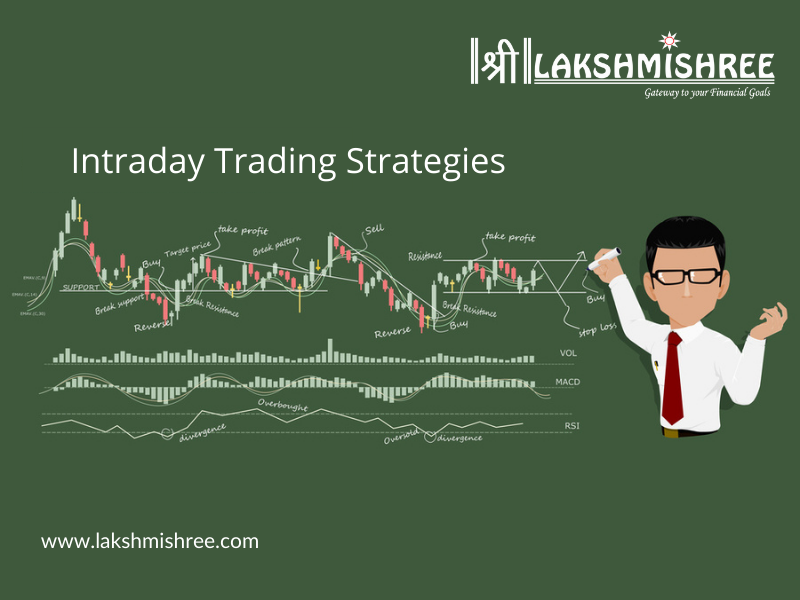
Intraday trading implicates buying and selling of stocks within the same particular trading day. Therefore, it is also termed day trading. Here, in this strategy, earning profits and bearing losses happen on the same day itself. Moreover, single-day momentum is the decider path for every trader. Here in this article, we are going to converse about the details of intraday trading strategy and how it becomes profitable for a trader.
Are you an investor or a trader? When you purchase a stock, the only person who can decide to do what is, you. You may also keep that particular stock for a decade to grow your investment stream. On the contrary, you may trade your scrip on the same trading day. No offense, but both have their pros and cons. So, if you are planning to go for a day to day trading, then here is the list of some successful intraday trading strategies.
Traders may opt for intraday trading strategies for monetary gains. Moreover, in this strategy, individuals are advised to square off their holdings before the closing bell. Before you initiate a trade, here is the checklist of some intraday trading strategies which an individual may employ to make handsome financial profits.
Here in this intraday strategy, news, public announcement, media report plays a significant role in financial earnings. Momentum means movement which further is defined as tracking the momentum of trend during the day as a whole. In other words, traders are advised to pick the right stock and make it materialize before any change occurs during market hours.
News-based stocks fall under this intraday trading strategy. Consequently, traders are recommended to keep an eye on such recent news which may impact the price or trend of the stock. Quarterly earnings, mergers or takeovers and many more plays an active role in picking profitable stocks.
Timing is the preeminent factor in breakout strategy. Stocks trade in their usual range but when a trader identifies an edge point at which prices may go up or down, is termed as a breakout strategy. For instance, the stock is in a consolidation phase but suddenly phase breaks and goes up or down thereby breaching the support and resistance levels. However, the trend will be a clear indicator of break-out strategy.
Traders are advised to go for long positions or buy shares if the share price rises above the edge point and vice versa if the share prices fall.
The inference of this intraday trading strategy is that when prices rose, an upward rally will be seen. On the contrary, when prices fall, a downward rally will be visible. However, in both scenarios, the trend will continue for intraday long.
An intraday trading strategy which associates with high risk. Reversal strategy is a strategy that is purely done based on analysis and calculations. This considers being the most difficult intraday trading strategy. Consequently, extensive knowledge about the market comes with paramount importance for individual traders.
Understanding the strength and pullbacks perfectly becomes a quite stimulating task for a trader to go with.
In India, the moving average crossover strategy is one of the most successful intraday trading strategies. As and when the prices of any financial instrument or scrips go above or below the moving average, that indication is a true pointer of change in momentum.
Moreover, when the price of securities goes above the moving average, an uptrend reflects. Traders are recommended to buy stocks. On the contrary, when the prices go down then the trend would be downtrend. Moreover, traders are suggested to sell the shares.
In this intraday trading strategy, the opening and closing of prices play a significant role in financial gains. Gap up opening occurs when yesterday’s closing price is lower than the present day’s opening price. On the contrary, a gap down occurs when yesterday’s closing price is higher than the present day’s opening price.
Intraday traders usually go with this strategy because they have a belief that the gap will certainly shut after the closing alarm bell.
Below are some rules which are advisable to be followed during intraday trade:
Intraday trading is a reward but a risky tool. For gains, it is advisable to trade after doing thorough research. Furthermore, deep knowledge and upgraded news may enlighten the traders to select profitable stocks.
The stock market is room to trade securities of public listed companies. Furthermore, the stock market is classified into two types- Primary market and Secondary market.
The primary market is an initial platform for a public listed company to raise capital from the general public thereby floating shares. Hence, is also referred to as Initial Public Offering(IPO).
Selling of new scrips in the primary market offers an authority to trade in the secondary market. An investor or trader may buy or sell securities in the secondary market only.
The Securities and Exchange Board of India is the governing body that controls the provisions of the stock market.
When you are into day trading, you need to have control over your emotions. Precisely, day trading is a sort of speculation which cannot be financed by emotional decision-making procedures.
For Intraday traders, there is no limitation. Your transaction limit depends upon your capital and risk which you are willing to raise and bear simultaneously.
No, you can make the possible trade thereby knocking up a margin only.
For intraday trading, the time between 9:30 am & 10:30 am is perfect. The reason behind this is that the market opens at 9:00 am and the first few opening hours offer numerous returns.
